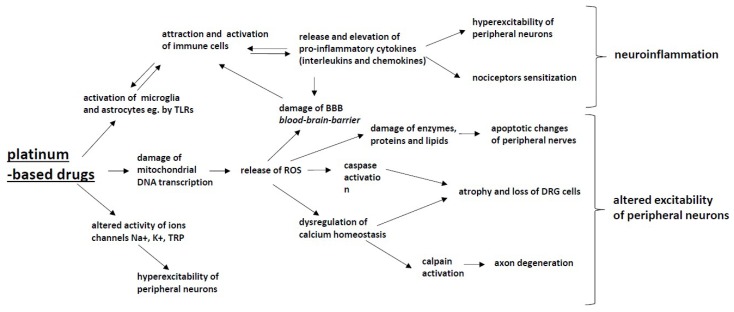Figure 1.
The mechanisms of chemotherapy-induced peripheral neuropathy (CIPN) induced by platinum-based drugs: Platinum-based drugs induce the activation of glia cells, which leads to the activation of the attraction and activation of immune cells and to the release and elevation of pro-inflammatory cytokines (interleukins and chemokines), which results in nociceptor sensitization and hyperexcitability of peripheral neurons, and (together with ROS) damage the blood–brain barrier. These processes lead to the development of neuroinflammation. Mitochondrial damage caused by platinum-based drugs leads to an increased production of reactive oxygen species (ROS), which leads to enzyme, protein and lipid damage within neurons as well as the dysregulation of calcium homeostasis, which induces apoptotic changes in peripheral nerves and in DRG cells. Platinum-based drugs also alter the activity Na+, K+ and TRP ion channels, resulting in the hyperexcitability of peripheral neurons. All of the above-described processes have the potential to alter the excitability of peripheral neurons.

